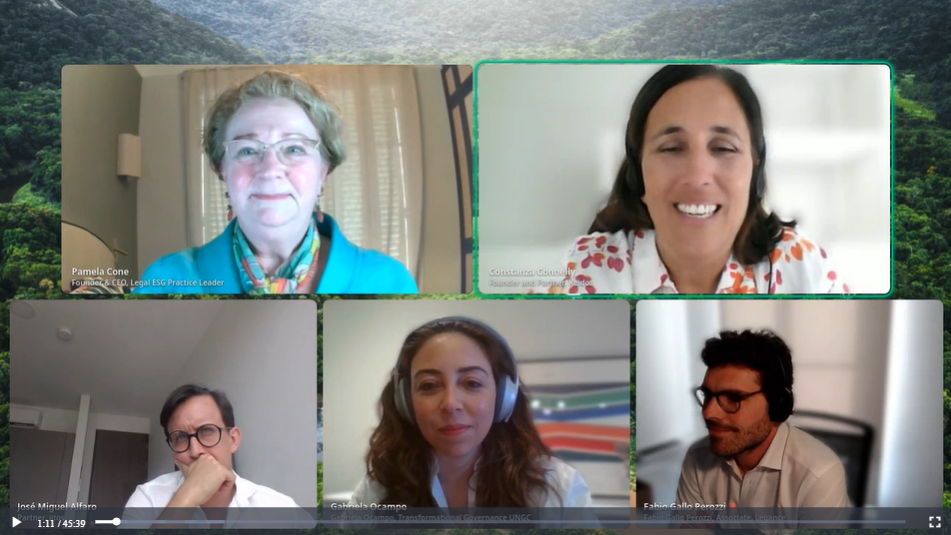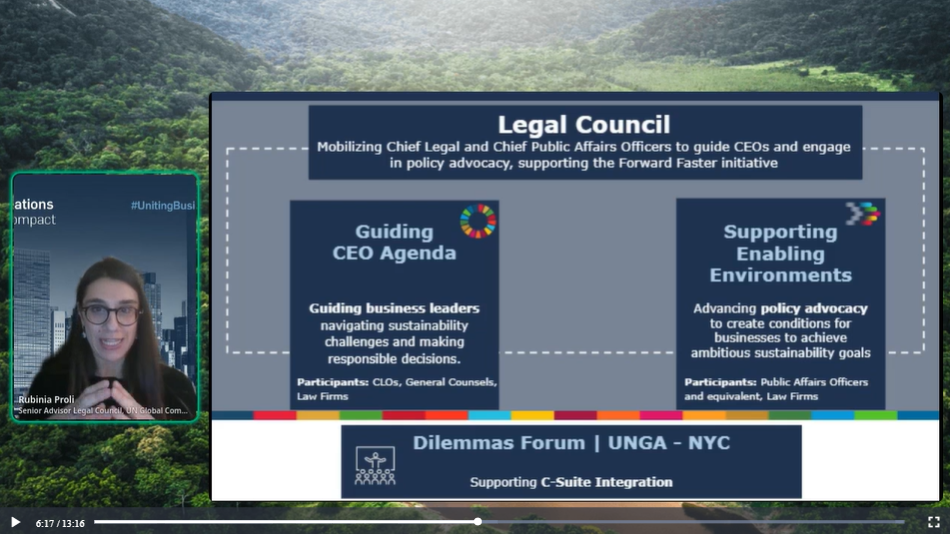May 6, 2025
AUTHOR Pamela Cone
In late March, 2025, during Legal ESG Latin America, the conversations revealed a critical focus on corporate governance, illuminating how governance must become integral rather than incidental within corporate strategies, for both law firms and clients. For leaders, the message was clear: robust governance is the cornerstone for effective ESG initiatives and sustained legal excellence.
Throughout the day, governance emerged not simply as compliance but as an ethical imperative, essential for addressing regional challenges including climate change, systemic inequalities, and the complexities of sustainable economic growth. Legal experts and thought leaders discussed how embracing ethical governance, characterized by accountability, transparency, and proactive stakeholder engagement, can bolster a company’s resilience and competitive edge in the global market.
The discussion encouraged the evolution from traditional shareholder-centric models toward inclusive stakeholder-driven practices. This shift emphasizes balanced representation and active consideration of the interests of employees, clients, communities, and environmental considerations.
Significant attention was also paid to the practical implications of international regulations such as EU directives, notably the Corporate Sustainability Due Diligence Directive (CSDDD). Given their extraterritorial reach, these directives compel Latin American entities to urgently strengthen governance practices, transforming compliance into a strategic advantage rather than merely a defensive necessity. For lawyers, this means proactive engagement in advising clients on aligning their operations and policies with these global standards, thus mitigating legal and reputational risks.
The necessity for embedding sustainability within corporate governance structures was underscored.
Law firms play a pivotal role in guiding clients through this integration, helping them navigate evolving regulations, implement robust reporting standards, and develop strategies aligned with long-term ESG objectives.
Addressing implementation challenges, participants highlighted the need for capacity-building initiatives within firms, promoting internal education and cultural shifts towards sustainability. Lawyers must not only advise externally but also champion these values internally, ensuring comprehensive adoption across organizational structures.
Legal ESG Latin America concluded with a powerful call to action for lawyers: view governance reform not just as a compliance checklist but as a strategic opportunity to drive value creation and future-proof their practice in a rapidly changing legal landscape.
If you missed Legal ESG Latin America, the full replay is available here.








